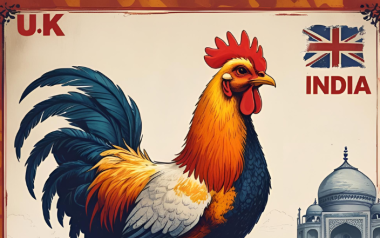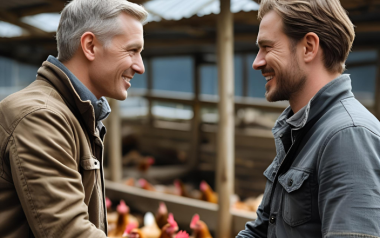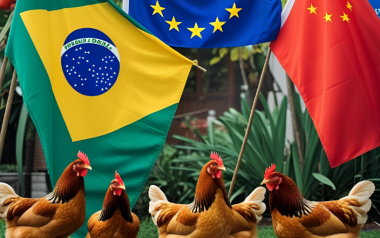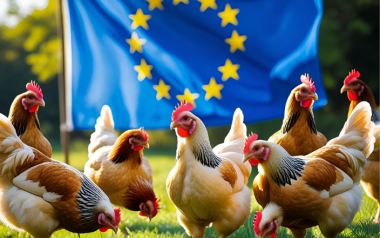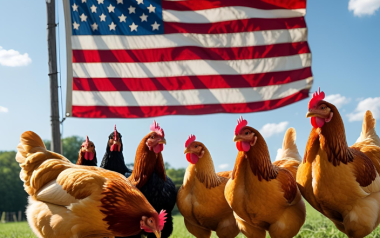20 Jun 2025
Poultry producers in Bangladesh seek tax relief to keep prices stable
In the proposed budget, corporate tax for the poultry sector has been increased from 15% to 27.5%, and turnover tax from 0.6% to 1%.
Poultry producers in Bangladesh have called on the government to reconsider increases in corporate and turnover tax proposed in the 2025–26 national budget, warning that the changes will raise production costs and put pressure on consumers.
At a views-exchange meeting on June14 at the Bangladesh Poultry Industry Central Council office in Dhaka, they demanded that turnover tax be reduced to 0.5% and corporate tax brought back down to 20% or less.
In the proposed budget, corporate tax for the poultry sector has been increased from 15% to 27.5%, and turnover tax from 0.6% to 1%.
Raising production costs
Shamshul Arefin Khaled, President of the Feed Industries Association Bangladesh and convener of the central poultry industry council, said the increase in turnover tax would directly raise production costs and hinder efforts to modernize the industry.
“This sector plays an important role in ensuring food security and affordable protein for the country. If costs rise, it will ultimately burden consumers,” he said.
He added that the overall tax burden on companies in the sector would now range from 35% to 50%, despite most entrepreneurs operating with only 2-3% profit margins.
“It is unreasonable to impose the same tax rate on a company with 20% profit and one with 2-3% profit,” said Mr Khaled.
Corporate tax
He also pointed out complications in how corporate tax is collected.
“Corporate tax should be based on total company profit after all losses and gains are calculated. But in our sector, tax is imposed solely on profits from product sales, without adjusting for losses elsewhere.”
He argued that targeting the poultry sector to raise revenue would create a crisis. “If tax exemptions cannot be restored, corporate tax should at least be reduced to 20%,” he said.
Advance tax on raw material imports
Poultry producers also raised concerns about advance tax on the import of raw materials for poultry feed.
They demanded that the advance tax on corn and soybean meal be reduced to 0.1%, down from the current 2% and 5% respectively, claiming that refunds are rarely processed despite official assurances.
“We are working to keep meat and egg prices stable, but we face high import duties when bringing in machinery to modernize the sector. Now, with corporate tax nearly doubled, we urge the government to declare the poultry sector tax-exempt for a set period,” said Mashiur Rahman, President of World’s Poultry Science Association – Bangladesh Branch.
He added that their goal is to raise annual per capita meat consumption from 20kg to a higher target, and egg consumption from 122 to 200 pieces.
Production will fall, prices will rise
Ehtesham B Shahjahan, Vice President of the Breeders Association of Bangladesh, said already, 20-25% of layer farms have shut down. If pressure continues instead of support, production will fall and prices will rise.
“We want concessions to keep prices stable. Comparing the poultry sector with others without considering its role in nutrition and food security would not be appropriate,” he said.
Poultry producers present at the meeting also noted that the supply of fish has decreased with shrinking rivers and canals, increasing the importance of poultry as a protein source.








